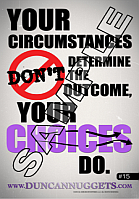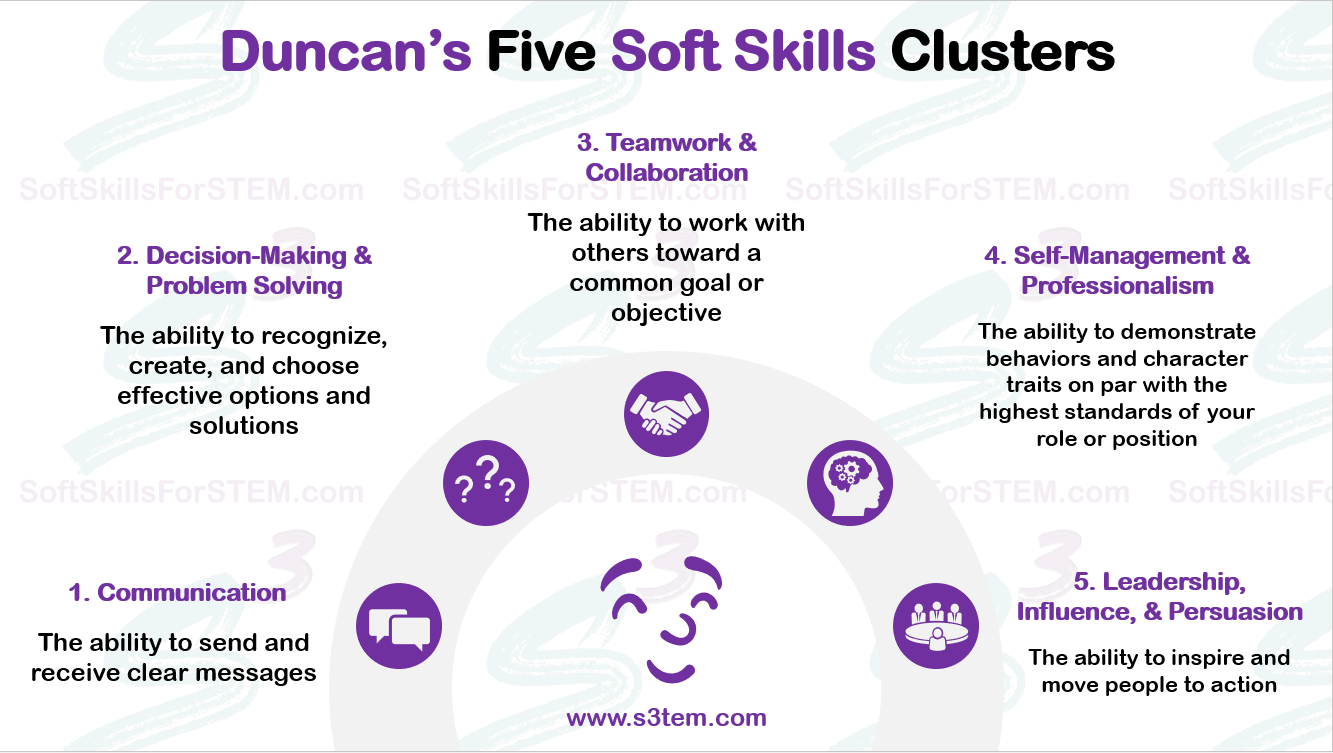National Mentoring Month: Expand Your Universe. Mentor a Child.
General Colin L. Powell will head National Mentoring Month 2010. Since 2002, January has been a time to celebrate mentors and acknowledge the vital role that they play in the development of young people.
National Mentoring Month is spearheaded by the Harvard Mentoring Project of the Harvard School of Public Health, MENTOR and the Corporation for National and Community Service. Click here to read more about this year’s campaign, including the Thank Your Mentor Day™ (January 21st).
Duncan Nugget® #52: Time to Do Something Different?
Self-motivation is crucial to achievement. But it will only last if you believe that there is a beneficial relationship between your behavior and your desired outcome.
Million-Dollar Question:
How does what you do in life help you to get what you want out of life?
If your answer is “it doesn’t” or “I don’t know” then why in the world are you doing it?! It’s your life, right? Maybe it’s time to do something different.
- Topics: Character DevelopmentDuncan NuggetsPersonal DevelopmentProfessionalSelf-Awareness & PurposeTeenYoung Adult
MTV: A Thin Line – Campaign to Fight Digital Abuse
Thanks @MTV. I have personally heard from dozens of young people who have been digitally abused. It sucks. Seriously.
In order to help deal with the problem MTV has a new multi-year initiative called A Thin Line to empower America’s youth to identify, respond to and stop the spread of digital abuse. Digital abuse is an emerging issue that includes behaviors like sexting, cyberbullying, and digital dating abuse.
Expect Problems and You’ll Probably Get Them
Recently, I read an article in Science Daily titled “Stereotypes Can Fuel Teen Misbehavior“. According to the article researchers interviewed a group of teens and their mothers about teen behavior. A year later, the researchers interviewed the group again. The teens whose mothers expected them to be rebellious reported higher levels of risk-taking behaviors than their peers.
I am not surprised by that at all.
The Perils of Popularity
Here are a couple of articles from Science Daily that outline the things young people go through in order to be popular.
The Dark Side Of Adolescent Popularity
“The new study was carried out on 1,319 teenagers at seven schools in Valencia, and shows that teenagers whose social status is questioned by their peers and are socially rejected by their classmates, or who do not have intimate friendships, suffer from greater feelings of loneliness, low self-esteem and low levels of satisfaction with their lives.”
Teens’ Perception That They Are Liked Found To Be At Least As Important As Actually Being Liked
“Teenagers who felt good about their own social standing did well over time, the study found, regardless of how popular they were (popularity was gauged based on assessments by peers at school). These teenagers were increasingly less hostile and more frequently sought out by their peers. Teenagers who were considered popular by their peers also did well, regardless of their own perceptions of their social standing.”
“Adolescents who lacked both a strong sense of their own social acceptance and who were rated by their peers as unpopular fared the worst, according to the study. They were increasingly more hostile, less sought out, and more withdrawn over time.”
C-SPAN’s StudentCam – $50,000 in Prizes
 C-SPAN’s StudentCam is an annual national video documentary competition that encourages students to think seriously about issues that affect our communities and our nation. Hurry! Deadline is Jan. 20th, 2010.
C-SPAN’s StudentCam is an annual national video documentary competition that encourages students to think seriously about issues that affect our communities and our nation. Hurry! Deadline is Jan. 20th, 2010.
Duncan Nugget® #70: The Disappearance of Logic
When emotions fill the room, logic goes out the window.
Everybody has done or said something stupid in the heat of the moment. That’s because, regardless of the situation, the more emotional you become, the more information you ignore. Your limbic system (the emotional brain) takes the driver’s seat and steers you in a direction you may later regret.
Million-Dollar Question:
How do you get your emotions under
control during a peak emotional moment?
There’s no guaranteed trick that works for everybody, but here’s a nugget:
It takes 6-9 seconds for emotion-producing chemicals to flood your system. Giving yourself a ten count (if possible) before you take action will at least give you a chance to deal with the initial flood of emotions.
You don’t have to be a robot. Just chillax. Calm down a little. You will think more clearly and hopefully, your logic will reappear.
- Topics: Character DevelopmentDuncan NuggetsPersonal DevelopmentProfessionalSelf-Awareness & PurposeTeenYoung Adult









